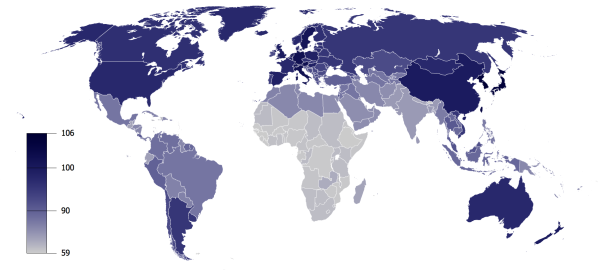In a colosseum gladiators were forced to fight each other or against some wild beast for the entertainment of the crowd. In Balkan, former-Yugoslavia in particular, different ethnic groups were exactly reenacting the colosseum show after 2000 years, only this time we watch the whole thing through the news program of our TV channel.
Of course there’s one big brother behind the whole show: The Western governments (or Germany in particular). Look at the political burlesque in Bosnia first. What’s the point of maintaining the country if Serbs and Bosnians, presumably share the comparable demographic size living in different regions with little overlapping settlements, never want each other in the first place? As expected, the pseudo-nationhood of Bosnia and Herzegovina never really works. If not for the carrot and the stick of the European Commission, BH wouldn’t exist in the first place (probably the term Bosnian either).
Then the stage shifts southward to Kosovo. It’s hard to convince me that the West is merely stupid and ignorant to interfere in a region that’s already messed up for decades in hope of solving those problems at once. I mean, there must be some other reasons other than a leftist scam. The situation in Kosovo is 10 times more screwed than that of Bosnia. The Albanian gangsterism is not something driven by the atrocity of Serbs in Balkan. It always has been there for years. NATO came, Serbs retreated. The next thing you know Albanian mafia runs the “country” now. If you say it’s a darn leftist scam. Then all right. Based on the principle of self-determinism, Albanians could probably get some kind of leftist legitimacy for the secession. But the implementation of the leftist principle seems to stop there, as apparently the northern Kosovo, which still remains predominantly Serbs demographically, is not allowed to rule by themselves and break away from Albanians Kosovo to join Serbia (They wouldn’t hesitate if they are allowed for a referendum). By leftist standards they are the minorities in Kosovo and therefore should be specially favored. Instead, NATO did everything they could to help the Albanians assert their authority over the Northern Serbs, over and over again. You expect the Serbs would just lay down and let them ravage over?
The most ridiculous part is, while EU find it extremely annoying to deal with the Serbs minorities in Kosovo, they simply turned shitface on Belgrade, blackmailing them if they dare to support their brothers down south they’d be forever banned from the possibility to join the mighty European Union. Well, eurocrats like to use this trick on Serbia. But do the eurocrats themselves really believe that one day Serbia would be part of the impeccable European Union (after their painful eastward expansion and economic crunch)? Unlikely. As far as I concern, they just want to nibble Serbia to the last straw, stripping off their privilege in Balkan after the fall of iron curtain. But then it leads to another question, why is EU so persistent in disintegrating the region just to screw up the Serbs? You don’t expect to tell me they do that just for the sake of many minority groups there so that they could be free from the Serbian despotism? The West never really considered Yugoslavia a major threat back in the days anyway. There must be another explanation about what they are really after in the region.

The good old days?









